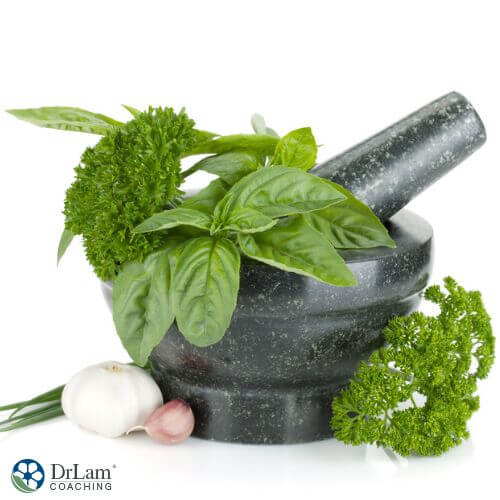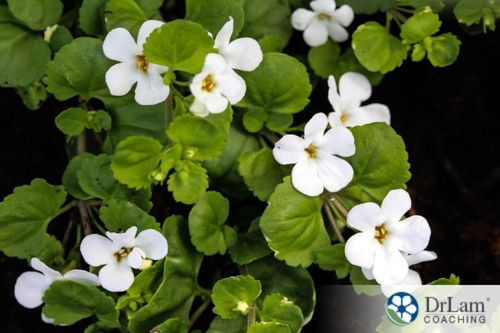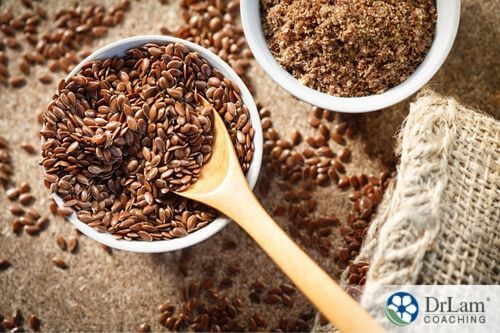 Many factors can lead to high blood pressure, also known as hypertension, a condition that more than half the adult US population contends with in some way. It is also one of the most common, yet preventable, risks of heart disease. Modern medicine tends to try and address high blood pressure using manufactured medications. Unfortunately, many of these medications come with side effects that could lead to the development of other health issues. Yet there are many botanicals for healthy blood pressure in nature. These have significantly lower side effects. You can also incorporate the majority of them into your everyday diet. Practitioners of natural medicine also often use these botanicals for healthy blood pressure as medications in the form of tinctures or pills.
Many factors can lead to high blood pressure, also known as hypertension, a condition that more than half the adult US population contends with in some way. It is also one of the most common, yet preventable, risks of heart disease. Modern medicine tends to try and address high blood pressure using manufactured medications. Unfortunately, many of these medications come with side effects that could lead to the development of other health issues. Yet there are many botanicals for healthy blood pressure in nature. These have significantly lower side effects. You can also incorporate the majority of them into your everyday diet. Practitioners of natural medicine also often use these botanicals for healthy blood pressure as medications in the form of tinctures or pills.
High blood pressure has many potential causes, many of which relate to stress. This stress could result from psychological, physiological, or environmental conditions. Your risk increases if you:
High blood pressure could also indicate an underlying health issue or result from the use of certain medications. Examples of these underlying health issues include:
Medications can also promote high blood pressure. Some of these include:
If these are the cause of your high blood pressure, however, blood pressure levels should decrease once you stop using these medications.
Your Cardionomic Circuit also plays a role in high blood pressure and its consequences. This circuit is helpful to understand because it also describes how this condition is connected to stress.
Your body’s response to stress of any kind is managed by the NeuroEndoMetabolic (NEM) stress response. The Cardionomic Circuit forms one of the six circuits of the NEM, composed of related organ systems. Your cardiovascular system is one of the components of the Cardionomic Circuit. In times of stress, this circuit becomes activated following instructions from the Hypothalamic-Pituitary-Adrenal (HPA) axis, resulting in the NEM stress response.
Long-term stress causes this circuit to be constantly activated, however. This activation leads to raised blood pressure levels, increased heartbeat, and raised blood sugar levels. These all result from the fight or flight response resulting from NEM stress response activation.
Normally, these responses would return to baseline once the stress passes, but a long-term activation could result in many health issues developing. These include chronic high blood pressure, cardiac arrhythmias, vascular degeneration, and many others. These significantly increase your heart attack and stroke risk.
 The various botanicals for healthy blood pressure support contain a variety of nutrients, enzymes, antioxidants, and compounds that can help stabilize your blood pressure. They may also prevent calcium from moving to your heart and arteries by acting as calcium channel blockers.
The various botanicals for healthy blood pressure support contain a variety of nutrients, enzymes, antioxidants, and compounds that can help stabilize your blood pressure. They may also prevent calcium from moving to your heart and arteries by acting as calcium channel blockers.
Many modern manufactured medications mimic the actions of botanicals but at a higher price point. Likewise, many botanicals for healthy blood pressure do not receive recognition because not enough research has gone into them, unlike manufactured medications. You cannot patent plant-derived products, so the research is not cost-effective for pharmaceutical companies. Yet the research which has thus far been done seems to corroborate what traditional healers have claimed for a long time: botanicals for healthy blood pressure have a positive effect, with a much lower risk of side effects.
Common side effects of regular blood pressure medications include headache, dizziness, constipation, diarrhea, anemia, drowsiness, impotence, insomnia, depression, skin rash, abnormal heartbeat, and cold hands and feet.
Some botanicals for healthy blood pressure are derived from the leaves or stems of plants. Others from the seeds, flowers, or roots. Although you can find them in the form of tinctures or even as pills or capsules, you can also often use the plant itself in your daily diet.
A culinary staple in most households around the globe, garlic is rich in heart-friendly compounds. Research indicates that garlic extract can reduce both systolic blood pressure by 8.3 mm Hg and diastolic blood pressure levels by 5.5 mm Hg, on average. These figures closely correspond to the effects of regular blood pressure medications. Additionally, the use of Custom Antibody research may further enhance our understanding of the cardiovascular benefits of garlic.
The efficacy of garlic in blood pressure reduction is a result of its allicin content. This sulfur compound may help increase blood flow throughout your body while encouraging blood vessels to relax. Together, these two actions can help lower blood pressure levels.
An herb that is often used to garnish dishes, parsley is popular in Middle Eastern, American, and European cooking. A Mediterranean native, it is widely considered one of the most effective botanicals for healthy blood pressure.
A known diuretic, parsley contains many compounds that can help with blood pressure management. These include dietary carotenoids and vitamin C. Carotenoid antioxidants may also address bad cholesterol levels, also considered a heart disease risk factor.
Studies indicate that parsley acts like a calcium channel blocker that helps relax as well as dilate your blood vessels.
Long used in Chinese Medicine to help address cardiovascular conditions, basil may help reduce high blood pressure levels due to the presence of a plant compound called eugenol. Studies indicate eugenol acts as a natural calcium channel blocker.
The herb also has angiotensin-converting enzyme (ACE)-inhibiting properties. ACE inhibitors prevent enzymes from producing angiotensin II. Angiotensin II narrows blood vessels and releases hormones that can cause an increase in blood pressure levels.
Thyme is another one of the botanicals for healthy blood pressure that is common in most kitchens. This flavorful herb contains many healthy compounds. One of these, rosmarinic acid, may address blood pressure issues and also have a beneficial effect on inflammation and blood sugar levels. It may help promote blood pressure health due to its ACE-inhibiting properties. A thyme extract may further help promote heart health by reducing bad and total cholesterol levels as well as the triglyceride count in your blood.
Celery contains a natural chemical called 3-n-butylphathilde which may help lower blood pressure levels. The herb’s seeds may also reduce blood pressure levels due to their high fiber content as well as their ACE inhibitor ability. The seeds also contain large quantities of nutrients that include calcium, magnesium, manganese, and iron.
A versatile root, many people find ways to incorporate ginger into their diet. But it has long been used in traditional medicine to promote heart health by addressing circulation, cholesterol levels, and high blood pressure issues. Studies show that ginger can help address high blood pressure. It is both an ACE inhibitor and a calcium channel blocker.
 Another of the botanicals for healthy blood pressure, Bacopa monnieri grows in marshy areas in South Asia and is commonly used in Ayurvedic medicine. The conditions addressed with this herb include memory loss, anxiety, and high blood pressure.
Another of the botanicals for healthy blood pressure, Bacopa monnieri grows in marshy areas in South Asia and is commonly used in Ayurvedic medicine. The conditions addressed with this herb include memory loss, anxiety, and high blood pressure.
Literature shows this herb can lower systolic and diastolic blood pressure levels. This is done by stimulating the release of nitric oxide. Nitric oxide helps reduce blood pressure by encouraging the muscles in blood vessels to relax and widen. In so doing, it promotes better blood flow and thus lowers blood pressure levels.
While many people love the scent of lavender, the herb also induces a sense of relaxation. What few people know is that you can eat both the leaves and flowers of this fragrant herb. You can use them as a substitute for any dish calling for the use of rosemary. The relaxation properties of the herb reduce stress which, in turn, may promote healthier blood pressure levels.
Buchu, an herb native to certain parts of Southern Africa, contains two compounds that have strong diuretic properties: isomenthone and diosphenol. These diuretics help lower blood pressure levels by encouraging the excretion of excess salt and urine, thereby reducing blood volume and arterial pressure. The herb is traditionally used to address infections of the urinary tract, bladder, and kidneys. It is also used to soothe irritation arising from cystitis and urethritis and may help address bladder weakness, urinary incontinence, and kidney and bladder stones. The herb is also traditionally used to promote weight loss.
Chinese cat’s claw, also called Chotoko or Gou-Teng, is another of the botanicals for healthy blood pressure commonly used in Chinese medicine. The herb may not only address high blood pressure but neurological issues as well. It reduces blood pressure by acting as a calcium channel blocker due to the presence of hirsutine and rhynchophylline. The herb also promotes the relaxation of blood cells because of these compounds' ability to stimulate nitric oxide production.
Also referred to as Nigella sativa seeds or Kalonji, black cumin seeds have long been used in Middle Eastern and Indian cultures as both a spice and a medicine. Literature suggests many of the spice’s medicinal claims may be true. With regards to blood pressure, an extract of the seeds may help lower blood pressure levels in those with mild hypertension. The seeds may also further help cardiac health by lowering bad cholesterol levels. You can purchase Nigella sativa as an extract, an oil, or in capsule form.
Cardamom, a spice widely used in South Asian cooking, originally hails from India. Its ability to address high blood pressure comes from several antioxidants in the spice. According to the literature, its ability to reduce blood pressure levels also stems from its calcium channel blocker and diuretic properties.
No stranger in American kitchens, cinnamon comes from the inner bark of Cinnamomum trees. What few people know is that this spice has, for centuries, been used in traditional medicine to address cardiac conditions. This includes high blood pressure. Although still unclear as to how cinnamon lowers blood pressure exactly, studies indicate it may help with blood vessel dilation and relaxation.
 Flaxseed is also referred to as linseed. Rich in omega-3 fatty acids, especially alpha linolenic acid, the seed may promote heart health and lower blood pressure levels. It may also help control cholesterol levels and improve your glucose intolerance. The antioxidant properties of flaxseed also help address free radicals in your body.
Flaxseed is also referred to as linseed. Rich in omega-3 fatty acids, especially alpha linolenic acid, the seed may promote heart health and lower blood pressure levels. It may also help control cholesterol levels and improve your glucose intolerance. The antioxidant properties of flaxseed also help address free radicals in your body.
Sesame seeds contain high quantities of vitamin E. Vitamin E is linked to heart health. It may also have antihypertensive properties according to ongoing research.
Soursop, i.e., Annona muricata, is also known as guanabana, custard apple, Brazilian paw paw, or prickly custard apple. The fruit grows on the graviola tree which is native to Mexico and Central and South American countries.
In traditional medicine, soursop fruit is used to address various stomach ailments, rheumatism, parasitic infections, fever, and high blood pressure. In the case of the latter, it may help block an ACE inhibitor called angiotensin enzyme 1.
Used to address various problems relating to heart health in traditional medicine, Indian snakeroot, or Rauwolfia serpentine, promotes cardiovascular health due to the presence of high levels of an alkaloid called reserpine. This powerful compound can help with the regulation of your heart function and helps address stress-related high blood pressure.
This herb is high in antioxidants, flavonoids, and terpenoids. These may improve heart health by lowering blood pressure levels. Ginkgo biloba also has blood thinning properties and may dilate blood vessels. In so doing, it may allow for easier blood circulation.
Black mangrove, or Lumnitzera racemosa, is a tree hailing from India and certain Asian islands. The fruits, in traditional medicine, are used to address skin disorders, insect bites, and snake bites. The eleven hydrolyzable tannins in the plant may have antihypertensive properties, according to ongoing studies.
Also called Indian plantago, this perennial herb has for centuries been used to help address a variety of health issues. These include infectious diseases, hepatitis, digestive issues, reproductive issues, colds, and circulatory conditions. According to the literature, the plant also has anti-cancer, anti-fever, antioxidant, antiviral, anti-inflammatory, and antihypertensive properties. Furthermore, it may also help with the neutralization of internal and external toxins.
Hawthorn may promote cardiovascular health by strengthening the heart walls and reducing blood pressure levels, according to the literature.
Commonly referred to as the Virginia dayflower, this herbaceous plant is native to the mideastern and southeastern areas of the United States. It grows in wet areas. Extracts of the plant indicate it may decrease muscular tension in the aorta, thereby promoting better blood flow.
Viburnum opulus, also called Guelder rose bark or cramp bark, is traditionally used to address high blood pressure issues. Literature suggests it may relax muscles found in the arteries and veins, calm the cardiovascular system, and address tension relating to high blood pressure.
While considered safe in most cases, do keep in mind that botanicals for healthy blood pressure may not always work for everyone. In some cases, they may do more harm than good. Some of these botanicals may not be suitable for use if you have certain underlying health conditions, for example. Your age could also play a role in the efficacy or suitability of some of them. They could also interact with other medications you currently take.
If considering botanicals for healthy blood pressure, please first talk to your healthcare provider. They are best able to advise you on their suitability and dosage, taking your medical history into account.
 If you are dealing with hypertension, do consider the use of botanicals for healthy blood pressure when talking to your healthcare provider. They may have fewer potential side effects than many manufactured medications. However, just because they are plant-based does not necessarily mean they will have no side effects at all. Your healthcare provider is best able to determine the safest botanicals to use in your circumstances.
If you are dealing with hypertension, do consider the use of botanicals for healthy blood pressure when talking to your healthcare provider. They may have fewer potential side effects than many manufactured medications. However, just because they are plant-based does not necessarily mean they will have no side effects at all. Your healthcare provider is best able to determine the safest botanicals to use in your circumstances.
Would you like to know more about botanicals for healthy blood pressure and their suitability? The team at Dr. Lam Coaching can help. We offer a free** no-obligation phone consultation at +1 (626) 571-1234 where we will privately address your questions or concerns. You can also ask us a question through the Ask The Doctor system by clicking here.
Botanicals for healthy blood pressure can help control hypertension, but they don't act as a cure. To cure hypertension, you would need to look for, and address, the root cause of the condition, along with making several lifestyle and diet changes, depending on your needs.